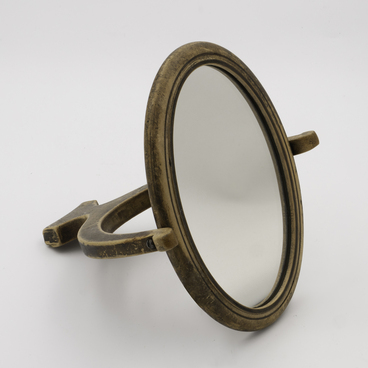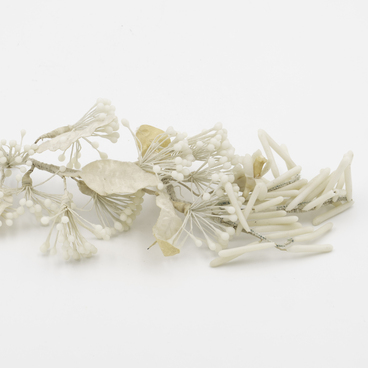Distilling — the production of strong alcohol from plant raw materials — appeared in Russia in the 15th century. The state periodically introduced a monopoly on the production and sale of alcohol, but in 1716 Tsar Peter I permitted to freely engage in distilling. Thanks to this reform, many private alcohol production plants were constructed in our country.
In Siberia, the distilling industry appeared in the 17th century and developed very quickly. By 1881, 12 distilleries were operating on the territory of the province. These plants accounted for 63.5% of the total cost of industrial production in the Yenisei province.
The production and sale of alcohol became one of the sources of initial capital accumulation. The famous Siberian bibliophile Gennady Yudin was actively engaged in the production of vodka. In the 70s of the 19th century, he built a distillery near Balakhta and had liquor stores in Krasnoyarsk and Yeniseisk. The largest number of wineries belonged to the Danilov dynasty.
At the end of the 19th century, the state again launched an attack against the private wine trade. The fourth monopoly was introduced (on the initiative of the Minister of Finance Sergei Yulievich Witte) in 1894 but was in full force from 1906 to 1913. The wine monopoly extended to the purification of alcohol and the sale of strong alcoholic beverages. Distilleries could belong to private entrepreneurs, but the alcohol produced by them was bought by the state treasury, was cleaned in state warehouses, and sold in state liquor stores. In 1913, the total revenue from the wine monopoly amounted to 26% of the budget revenues of Russia.
The photo from the museum collection depicts the ‘Kazansky No. 4’ distillery, which belonged to Lydia Yarilova. It was located 200 kilometers from Krasnoyarsk, near the Medvedskoe village on the Ubey River. The nearest large village to the plant was Novoselovskoye. The distillery and mill were built in this place by Lydia Yarilova’s father-in-law Arseny Yarilov, who was also a famous merchant. Lydia got the plant from her late husband, Herodion Yarilov.
The distillery industry in Siberia used mostly cereals: rye, wheat and barley. Alcohol was imported to Krasnoyarsk by ferry. All the buildings of the Yarilova plant were made of wood, they also included 11 residential buildings and a water mill with a concrete barrage. In total, the plant distilled up to 100 thousand buckets of alcohol a year. In the 20th century, during the revolution and the civil war, all the equipment of the plant fell into disrepair. Under the Soviet regime, the watermill was used by LesTrest, the Timber Exchange of Siberia, and the premises were converted into a tannery.
In Siberia, the distilling industry appeared in the 17th century and developed very quickly. By 1881, 12 distilleries were operating on the territory of the province. These plants accounted for 63.5% of the total cost of industrial production in the Yenisei province.
The production and sale of alcohol became one of the sources of initial capital accumulation. The famous Siberian bibliophile Gennady Yudin was actively engaged in the production of vodka. In the 70s of the 19th century, he built a distillery near Balakhta and had liquor stores in Krasnoyarsk and Yeniseisk. The largest number of wineries belonged to the Danilov dynasty.
At the end of the 19th century, the state again launched an attack against the private wine trade. The fourth monopoly was introduced (on the initiative of the Minister of Finance Sergei Yulievich Witte) in 1894 but was in full force from 1906 to 1913. The wine monopoly extended to the purification of alcohol and the sale of strong alcoholic beverages. Distilleries could belong to private entrepreneurs, but the alcohol produced by them was bought by the state treasury, was cleaned in state warehouses, and sold in state liquor stores. In 1913, the total revenue from the wine monopoly amounted to 26% of the budget revenues of Russia.
The photo from the museum collection depicts the ‘Kazansky No. 4’ distillery, which belonged to Lydia Yarilova. It was located 200 kilometers from Krasnoyarsk, near the Medvedskoe village on the Ubey River. The nearest large village to the plant was Novoselovskoye. The distillery and mill were built in this place by Lydia Yarilova’s father-in-law Arseny Yarilov, who was also a famous merchant. Lydia got the plant from her late husband, Herodion Yarilov.
The distillery industry in Siberia used mostly cereals: rye, wheat and barley. Alcohol was imported to Krasnoyarsk by ferry. All the buildings of the Yarilova plant were made of wood, they also included 11 residential buildings and a water mill with a concrete barrage. In total, the plant distilled up to 100 thousand buckets of alcohol a year. In the 20th century, during the revolution and the civil war, all the equipment of the plant fell into disrepair. Under the Soviet regime, the watermill was used by LesTrest, the Timber Exchange of Siberia, and the premises were converted into a tannery.



